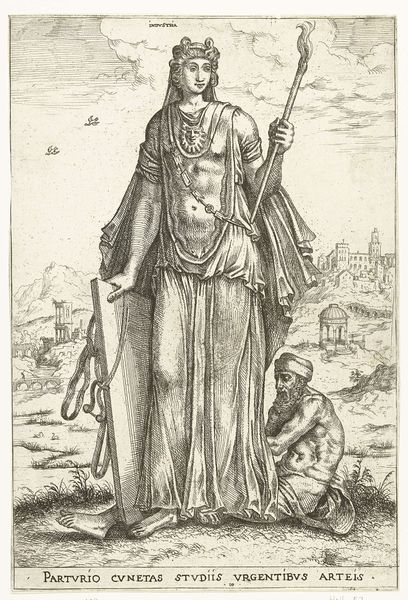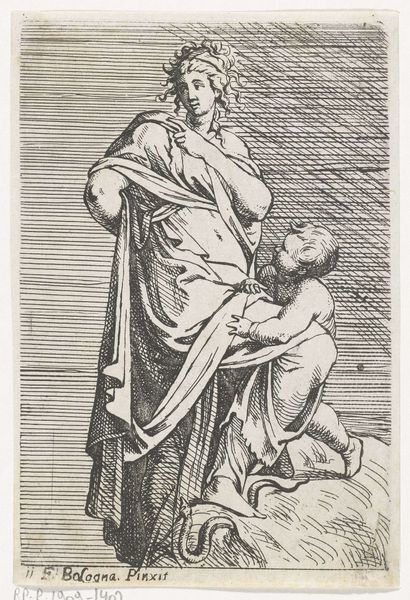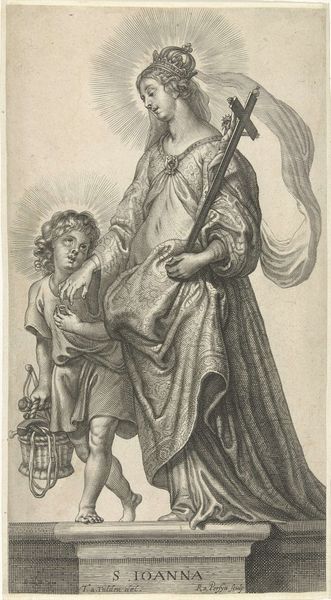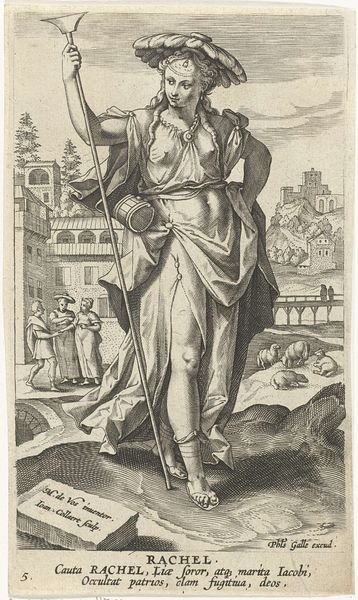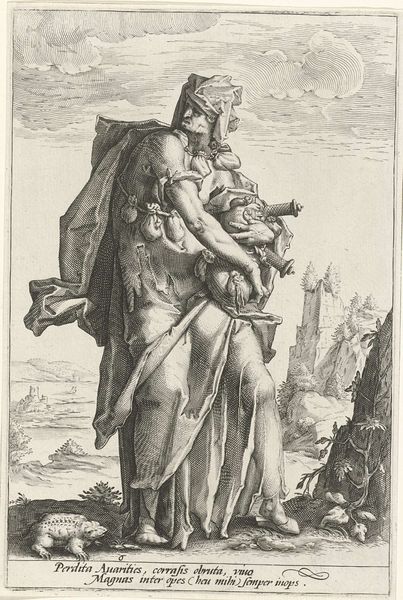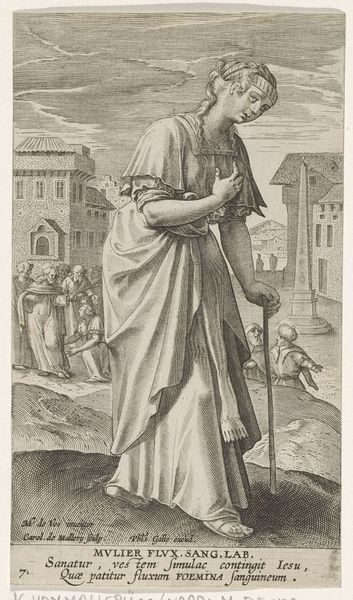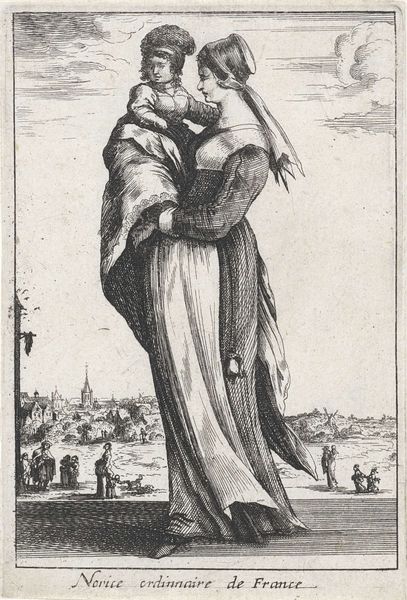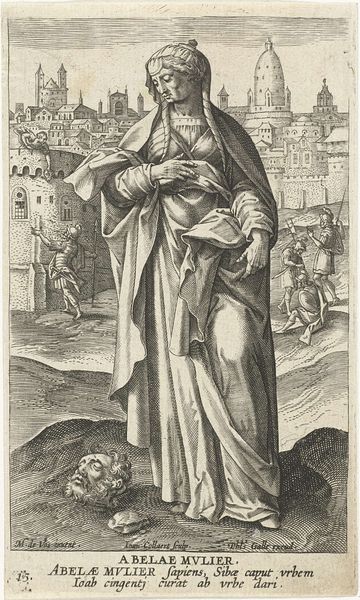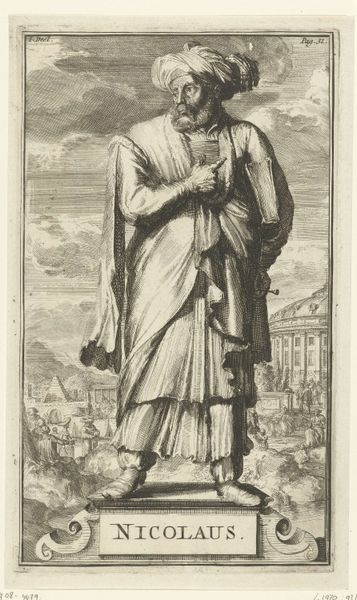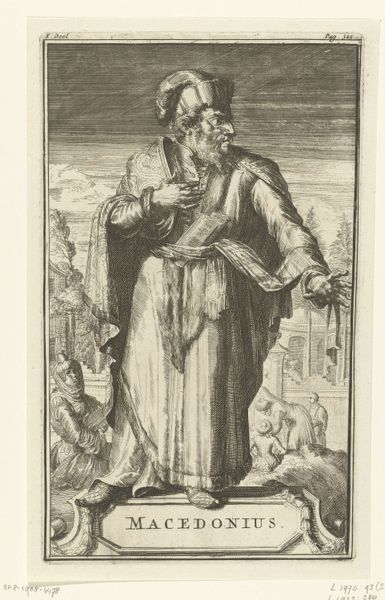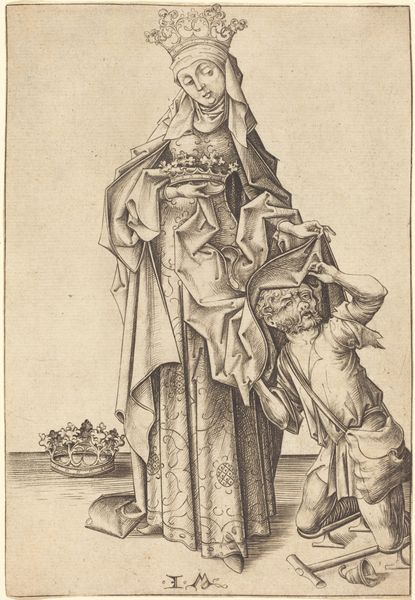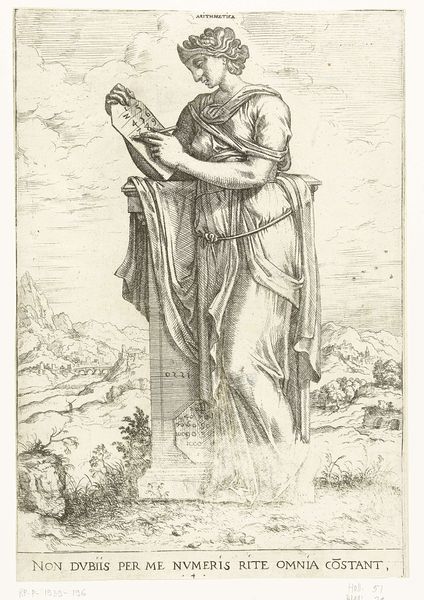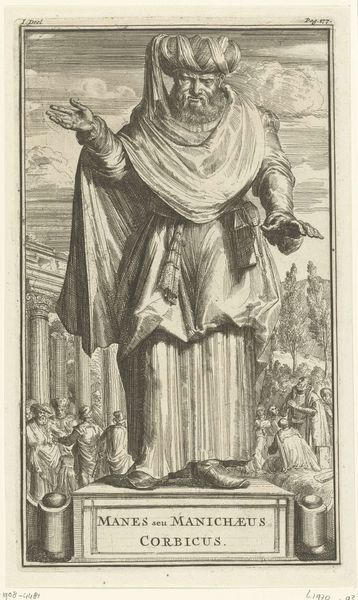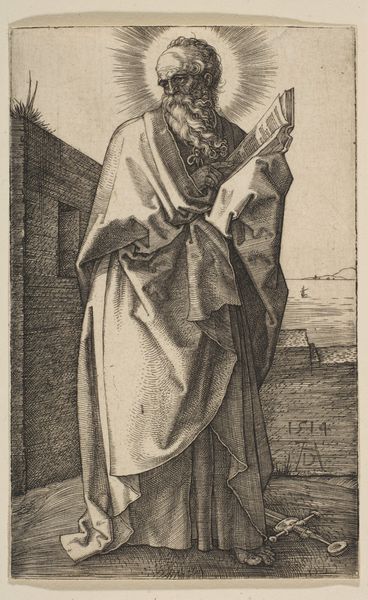
print, engraving
#
portrait
#
allegory
# print
#
old engraving style
#
landscape
#
mannerism
#
figuration
#
line
#
history-painting
#
italian-renaissance
#
engraving
Dimensions: height 300 mm, width 203 mm
Copyright: Rijks Museum: Open Domain
Hieronymus Cock made this print, Grammatica, in the mid-16th century, using the intaglio technique. This means that the image was incised into a metal plate, likely copper, using tools like burins and etching needles. Look closely, and you'll notice the extraordinary level of detail, achieved through a network of fine lines. The quality of the print relies on the skill of the artist, who had to translate his ideas into precise and repeatable marks. But it also speaks to the labor of the printer, who would have meticulously inked the plate, wiped it clean, and then pressed it onto paper. Prints like this one were crucial in disseminating knowledge and artistic ideas in early modern Europe. The lines that make up the image are not just marks on a page, but a testament to the collaborative labor that went into producing and circulating images in a rapidly changing world. They remind us that art is always the product of both individual creativity and collective effort.
Comments
No comments
Be the first to comment and join the conversation on the ultimate creative platform.
